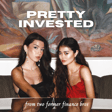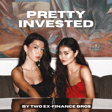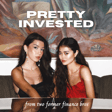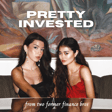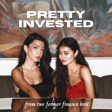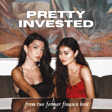
(Financial) Wellness 101 with Tina Pham
In this episode, Eleanor and LD interview Tina Pham, an investor, entrepreneur and business development professional. She was previously with Blackstone before leaving to start her own business "HerEquity." Her mission is to help high-achieving women take control of their finances and build a healthy relationship with money. Tina shares a glimpse of her personal story and some helpful frameworks to think about money management.They chat about building confidence with money management, goal-focused budgeting, and the importance of investing - all with a female audience in mind!
--
For more information on Tina, connect with her on LinkedIn or visit the HerEquity website.
You can find us on YouTube, TikTok, and Instagram at:
https://www.youtube.com/@PrettyInvestedMedia
https://www.tiktok.com/@prettyinvestedmedia
https://www.instagram.com/prettyinvestedmedia
Pretty Invested Media and this related information does not constitute professional or financial advice of any kind (including business, employment, investment advisory, accounting, tax, and/or legal advice). Advice from a suitably qualified professional should always be sought in relation to any particular matter or circumstance.
